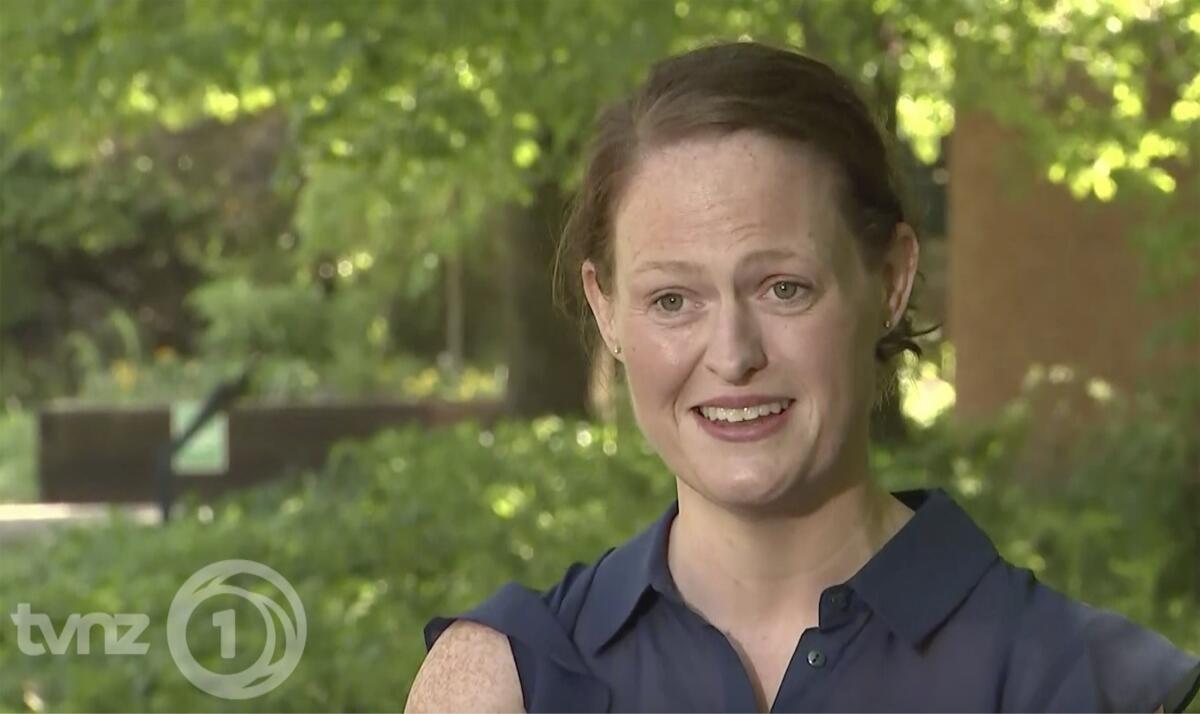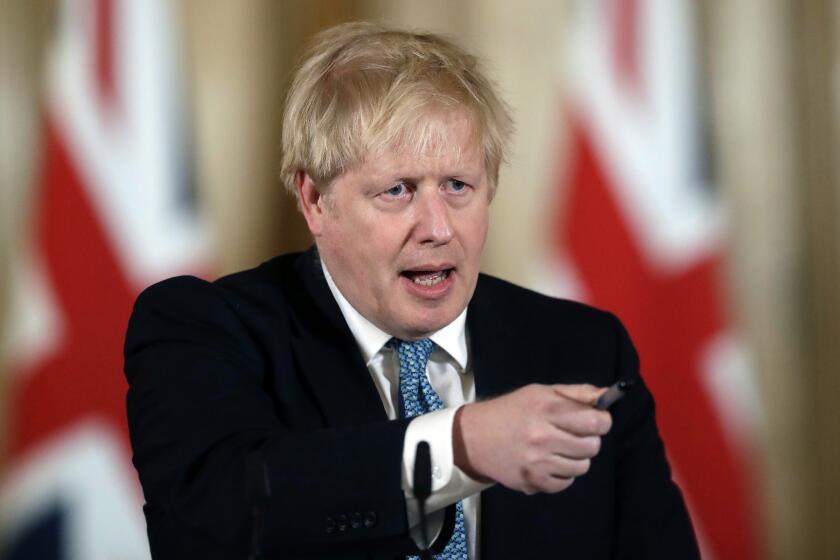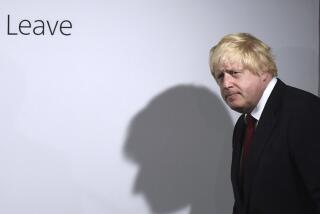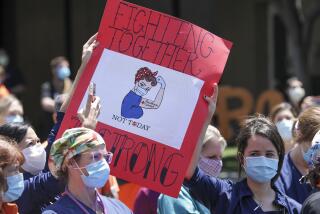Boris Johnson’s nurses recount caring for coronavirus-hit British leader

- Share via
WELLINGTON, New Zealand — Nurse Jenny McGee from New Zealand says that helping save somebody as notable as British Prime Minister Boris Johnson in his battle with the coronavirus didn’t faze her, thanks to her years of dealing with stressful situations in intensive care wards.
McGee was one of two National Health Service nurses singled out for praise by Johnson, 55, who was the first world leader confirmed to have the virus. He was discharged from St. Thomas’ Hospital in London earlier this month after spending several days in its intensive care unit.
In an interview with Television New Zealand that aired Thursday, McGee said the hospital staff treated Johnson as any another patient. She has worked for 10 years in intensive care, including five as a leader.
“When I got in the car after work each night and I could hear things about Boris Johnson on the news. That was very surreal because I thought ‘Wow. I’ve been looking after him,’” she said. “But I really wasn’t fazed by looking after Boris Johnson.”
But she was taken by surprise when he mentioned her by name.
“I thought my friends were playing a joke on me. I wasn’t expecting it,” she said.
Johnson, stricken by the coronavirus, had been in the hospital for a week and had spent three nights in the intensive care unit.
Luis Pitarma, the other nurse Johnson mentioned by name, said that he was “extremely proud” Johnson had thanked him and that he had been by the British leader’s side during his three nights in the ICU.
Pitarma, 29, admitted he was “nervous at first” when hearing who he was assigned to care for. Originally from Aveiro, in Portugal, Pitarma said it was “quite overwhelming” but that his supervisor told him to be himself.
Pitarma, who has worked at the hospital for nearly four years, said in an interview published on the hospital’s website that Johnson made him “feel less nervous” by asking to be called “Boris” by the staff.
Johnson’s battle with COVID-19 had Britain on edge for days, with his admittance to the hospital an ominous sign. He is now recuperating at the official prime ministerial country house, Chequers, while Foreign Secretary Dominic Raab acts in his place.
McGee told TVNZ that in her role in the ICU she constantly monitors her patients and gives feedback to the doctor. Johnson had said the nurses made needed interventions, but McGee declined to specify what they were, out of respect for patient privacy, saying only that “he absolutely needed to be” in the ICU.
“He was interested in where I came from and what my story was, and we spent a lot of time together and we talked away about New Zealand,” McGee said.
Queen Elizabeth II offered support to a country locked down in the coronavirus pandemic, promising the nation that it would rise to the challenge and overcome the outbreak.
She said another shock came when New Zealand Prime Minister Jacinda Ardern messaged her.
“So on the night that it happened I had to turn my phone off because it was so overwhelming, and when I turned my phone on in the morning, people were like, ‘Jenny, you need to look at your Facebook,’ and I was called a snob for not responding to Jacinda,” she said, laughing.
“She’s a hero of mine. I think she’s amazing. She just said how proud she was of me, and the country was so proud, and it was so heartwarming. And that’s something I will never forget.”
McGee told TVNZ that her work during the pandemic has been physically exhausting and emotionally draining as she and her colleagues do their best to save as many lives as they can.
“The darkest moment most definitely is being with someone who has passed away and their family is not there,” she said.
She said there remained a wonderful sense of spirit and teamwork in the National Health Service.
More to Read
Sign up for Essential California
The most important California stories and recommendations in your inbox every morning.
You may occasionally receive promotional content from the Los Angeles Times.











